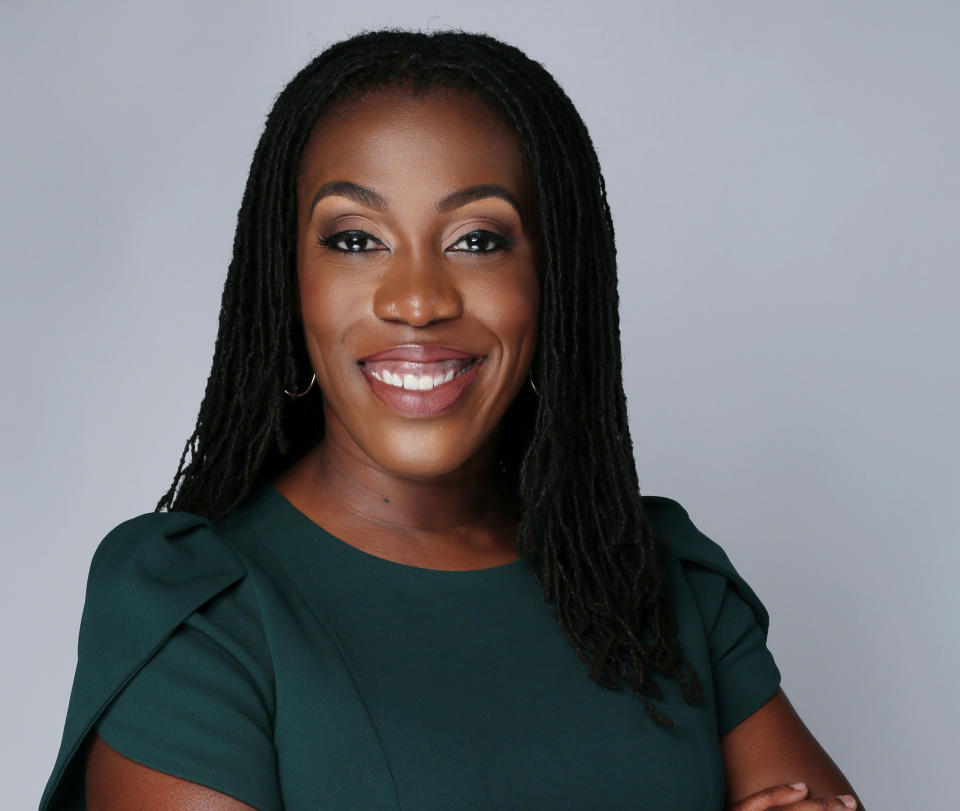Resilience 2020: How to rebuild your personal finances and career in a pandemic
The pandemic has disrupted the personal finances and careers of millions of Americans and the recovery from it could take a long time.
In 2020, many have had to deal with job losses, wage cuts, and economic and professional uncertainty in the last few months. But this doesn’t mean you can’t plan and work on your money goals and future career prospects.
A panel of experts who participated in Verizon Media’s Resilience 2020 shared their advice on how to remain resilient in a crisis and how to begin building and continue growing after going through financial and career hardships.

‘Pull the boat out of the water and plug the holes’
Tiffany Aliche, a financial educator also known as “The Budgetnista,” was a school teacher who lost her job during the Great Recession. She at first thought she had no other options, but that setback helped her better understand her strengths.
“I remember thinking I'm not good at anything, but teaching,” she said. But “that was more than enough.”

Looking for a job and rebuilding your personal finances coming out of a recession can be a good way to identify any problems you have with the way you budget, save, or pay down debt.
If you haven’t been saving enough, this is a time to plan how to save more. If you haven’t had a good budget plan, this is the time to make a better one. If your credit score is low, this is the time to look into how to improve it, according to Aliche.
“This is showing you the holes in your boat,” Aliche said. “Now, you know to pull the boat out of the water and plug the holes.”
‘The biggest resource people don't recognize that they have is themselves’
In tough economic times, the options are very limited both for exploring career opportunities and improving your personal finances. But this might be a great time to evaluate and reflect on what you already have.
“The biggest resource people don't recognize that they have is themselves,” said Dr. Erika Rasure, assistant professor of financial and business services at Maryville University. “What we have right now is an opportunity to start self-reflecting, acknowledging that grief, and start finding opportunities to examine what our core values are.”

After doing some research and evaluating where you currently are, you should start looking for different job opportunities, ways to supplement your income, and new ways to invest and get the most out of your paycheck.
“Being able to take a look at what's going on inside is the place to start,” Rasure said. “You and yourself are your absolute greatest resource at this point.”
‘Acknowledge that is not enough’
With the pandemic putting pressure on the competing financial priorities, it may be overwhelming to even start rethinking your finances. Acknowledging the difficulty is a good starting point, according to Aliche, especially if your income has dropped.
“It's okay to acknowledge that is not enough,” she said. “If you really don't have enough to cover the essential expenses, then there's the initial budget that I like to call your health and safety budget.”
To do this, highlight the things that you need to maintain your well-being. And then if there is money left over you can move to the “noodle budget,” as Aliche calls it, where you can include entertainment, dining out, and other expenses that you can cut during difficult times.
“The problem that most people run into is that they don't pivot fast enough,” Aliche said. “During this recession, so many people lost a tremendous amount of their money but might not have pivoted soon enough.”
‘Being able to change quickly, that's really the key’
With unemployment still being at the highest rate in the last eight years and hiring is much slower than before the pandemic, starting a new business may also be difficult. Adapting to changes quickly is the way for your finances and career to remain resilient.
Take Allison Arevalo, chef, author, and owner of Pasta Louise, who started her restaurant business in one of the most difficult times for the industry — this spring as the pandemic crisis took hold.

“Being able to change quickly, that's really the key,” she said. “[You have to be] able to recognize when things need to change and not be set in a structure that maybe would work 10 years ago or maybe works when the financial times are great.”
Arevalo was supposed to open her restaurant in April and she changed her business model to a retail-based one, selling pasta kits, rather than focusing on indoor dining. People still needed to eat, she realized, but that was going to look different than before.
She challenges business owners to think about “what does the community need right now,” she said, “and how is my business model going to change” to reflect that.
Denitsa is a reporter for Yahoo Finance and Cashay. Follow her on Twitter @denitsa_tsekova.
Read more information and tips in our Career section






